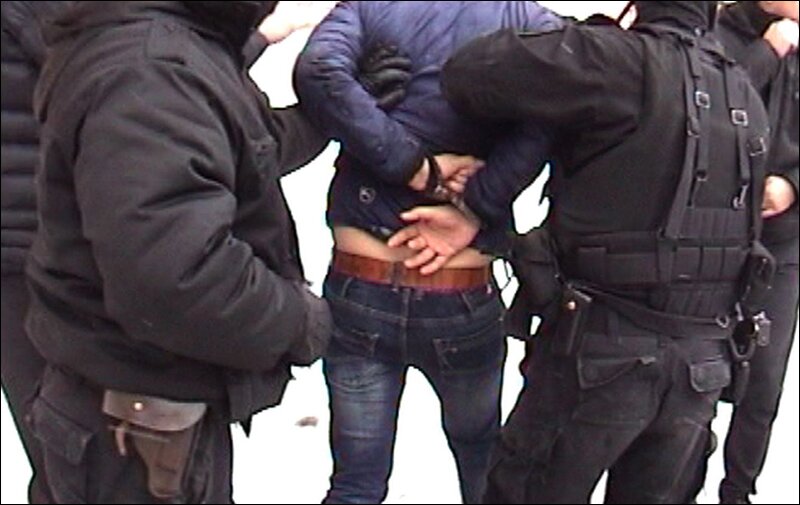Two members of now-defunct nationalist group arrested
Two members of a now-defunct paramilitary nationalist organization called Bely Lehiyon (White Legion) were arrested in Minsk on Tuesday night, hours after Alyaksandr Lukashenka announced the arrest of dozens of "armed militants" preparing to stage a "provocation."

Miraslaw Lazowski, an employee at the Knihazbor publishing company who was once a leading member of Bely Lehiyon, was brought in handcuffs to his apartment by masked men in civilian clothes at around 8 p.m. The man had been apparently beaten up during his arrest as his face and head were covered in blood, activist Nina Shydlowskaya told BelaPAN.
The plainclothesmen searched the apartment for two hours before taking Mr. Lazowski away. They told the man's fiancee that the arrest and raid were linked to a call for violence made by unknown people on behalf of Bely Lehiyon earlier this month.
The whereabouts of Mr. Lazowski remained unknown on Wednesday morning.
Andrey Dundukow, who was also a member of the group in the past, was arrested at the Ukrainian border, as he was traveling in company with his wife and small child to a mountainous resort in western Ukraine. "The car was stopped at the border, Andrey was taken away," said Ms. Shydlowskaya. "His wife and the child managed to return to Minsk only at 6 a.m."
On the same day, book distributor Ales Yawdakha was brutally arrested by plainclothesmen as he was exiting an art center after a literary award ceremony. There were unconfirmed reports that he was facing a charge of organizing mass disorder and the case may be linked to the arrest of Messrs. Lazowski and Dundukow.
Earlier this month, Mr. Lazowski complained that someone had hacked his Facebook account and posted a statement on behalf of Bely Lehiyon that called for acts of violence against the authorities.
Speaking to workers at a woodworking plant in the Mahilyow region on Tuesday, Mr. Lukashenka said that a "few dozen who were training in camps with weapons" had already been arrested.
"By the way, one of the camps was near Babruysk and Asipovichy," he said. "The other camps were in Ukraine. As far as I know, they were also in Poland and Lithuania, though I'm not sure but somewhere in that region. Money arrived in our country through Poland and Lithuania."
According to him, the authorities learned of the militants' activities after a Belarusian citizen resident in the European Union contacted a Belarusian embassy. "She wrote a letter saying that a provocation was being prepared," he said. "And we started investigating and did find very interesting things."
The authorities will now have to establish "where the money came from, who led the training and from what countries the appropriate people came," said Mr. Lukashenka.





Disqus?